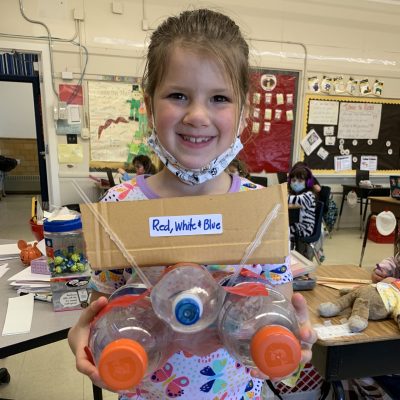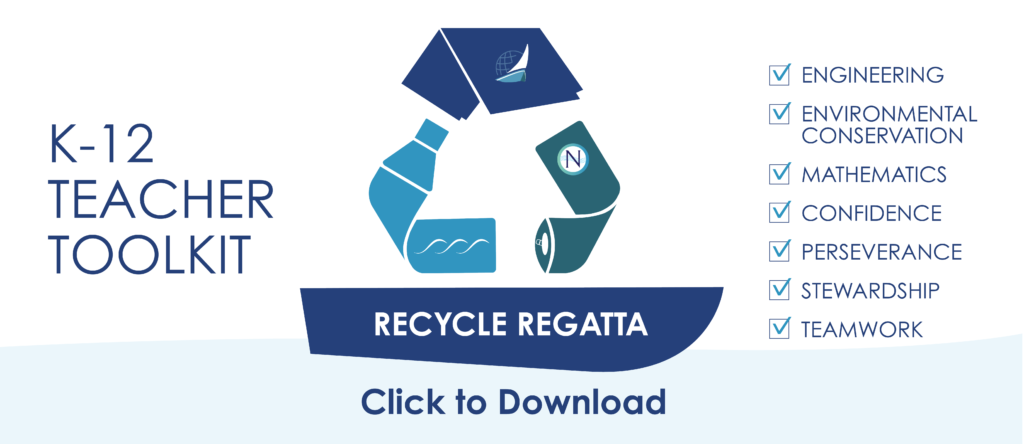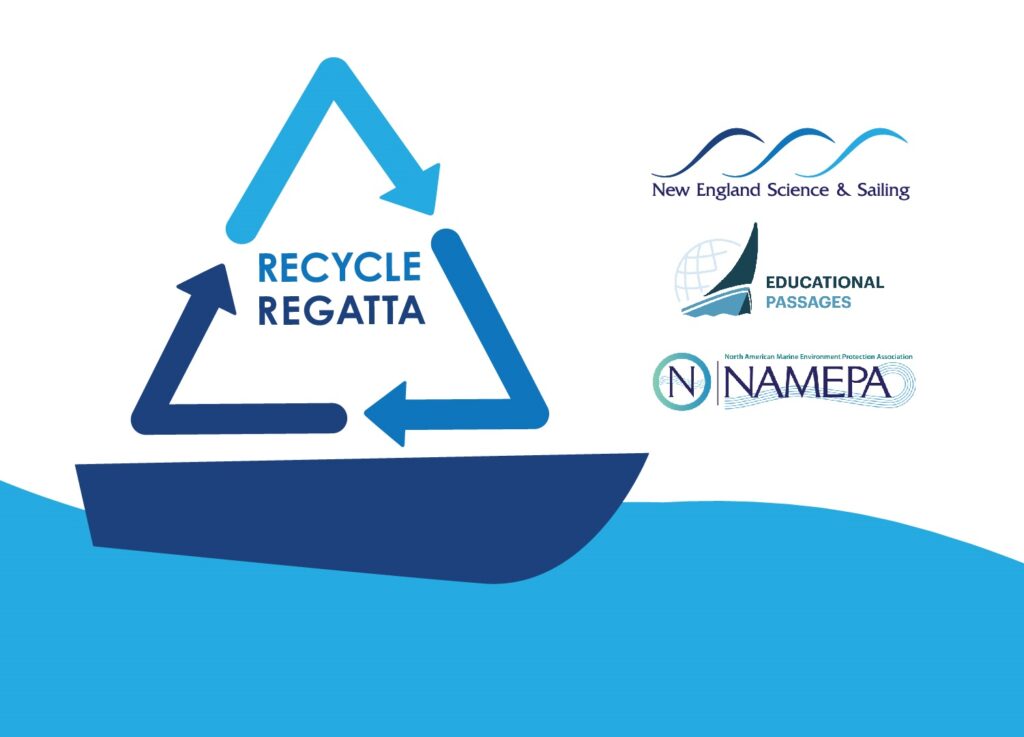2024 Recycle Regatta
5th Annual Recycle Regatta
Apply the engineering method and help your students become environmental stewards as you repurpose recyclables into seaworthy vessels! Master buoyancy, engineering, and physics obstacles to race your boat creations to victory.
The Recycle Regatta is a free, fun, hands-on competition for K-12 students to participate in from anywhere! Students build a model sailboat from recycled and repurposed materials and race to victory while discovering engineering, mathematics, sailing, buoyancy, and stewardship. Two awards will be given for each fleet, including the fastest and most creative vessels.
Classrooms, boating centers, and community organizations are invited to host their ”Regatta” and submit their students’ entries!

The Recycle Regatta is aligned to:
– Next Generation Science Standards (NGSS)
– Ocean Literacy Principles (OLP)
– Social and Emotional Learning (CASEL)
While also gaining an appreciation for recycling and stewardship, participating students will walk away from the Recycle Regatta with an increased knowledge of:
– Engineering
– Environmental Conservation
– Mathematics
– SEL skills (Teamwork, Confidence, and Perseverance)
CONGRATULATIONS to this year’s winners and thank you to all who participated. Check out the winners below, and be sure to sign up for updates and announcements to join us next year!
The 2024 Recycle Regatta RESULTS
THANK YOU to our 5th Annual Recycle Regatta participants for your support and engagement, and CONGRATULATIONS to our winners!
MOST CREATIVE
Miniboat: Jack & Beau, Explorer LL
Opti: Blake & Scott, THE BOAT!
Hartley: Delilah & Lillian, WHIOH (wwh-eeooo-hhhh)
Laser: Yanxi & Colesha, The Cat
MOST SEAWORTHY
Miniboat: Margot, Crabby Crab
Opti: Mr. Nason’s 4th Grade Class, Speed Racer
Hartley: Jose & Joaquin, Costco4Life
Laser: Kai N., S.S. Fat Shark
Resources
Download the Teacher Toolkit and the Official Rules & Guidelines to help bring the Recycle Regatta into your classroom! Additional educational resources, including videos, are available below.
Calculating Boat Speed
Ocean Currents and Miniboats At Sea
The Engineering Method
Physics of Sailing
Marine Debris
Buoyancy
Recycling Practices
The Recycle Regatta aims to involve students in efforts of marine conservation in an enjoyable and innovative way. If this project sparks your interest in keeping our oceans clean, keep reading! It is estimated that eight million metric tons of plastic find their way into our oceans every year. Now, that is a lot of plastic waste! While the whole world is responsible for our oceans, each country must do their part to help clean our waterways. You may be asking what I can do, as one person, to help? Plenty! You’ve probably heard the phrase “Reduce, Reuse, Recycle” before, but there are more options to help you along your way into a waste-free life.
REFUSE The easiest way to help reduce waste anywhere you are is to simply refuse. When you are in the grocery store, you can opt not to use plastic produce or grocery bags. At a coffee shop, you can bring your own reusable mug instead of getting a single-use cup. However, sometimes plastic is unavoidable in our lives, and if that is the case, continue down the list!
REDUCE Receiving a single-use item is often not an option. For example, a gift or many options at the grocery store. If this is the case for you, try to be conscious of your plastic consumption and make changes where you can! In modern-day society, it’s not realistic for most people to be completely waste-free; however, any small changes will help the world we live in.
REUSE Some single-use items are easier to reuse than others, but if you stay conscious of the types of items you purchase, you may be surprised at what can be reused! For example, items such as jugs and jars, water bottles, paper, and cans can all be reused at least one time before they are recycled.
REPURPOSE A last effort you can make before you send waste off to the recycling bin is to repurpose items into something else. Is there something in your home that you don’t use anymore? Before you throw it away, try to think of a way you can repurpose it! A water bottle or even old boots can be used as planters. Old cans and glass bottles can be repurposed into storage cups or decor. Take any type of plastic and turn it into a sailboat to enter into the Recycle Regatta!
RECYCLE If none of the options listed above are an option, check out the recycling practices in your state! Each state has different regulations when it comes to recycling; some states have strict rules, while others are a bit more relaxed. Remember, if the state you live in isn’t recycling as much as others, you can still use the other four “R’s” to be conscious of your plastic or waste consumption.
Recycle Regatta Hosts

New England Science & Sailing (NESS) is a nonprofit, tax-exempt organization that uses sailing, marine science, powerboating, and ocean adventure sports as experiential learning platforms to increase K-12 academic outcomes. NESS educators teach in classrooms and on the water, using over 100 proprietary lesson plans tied to school standards, including the Next Generation Science Standards, Ocean Literacy Principles, and Collaborative for Academic, Social, and Emotional Learning standards. NESS is the only school partner program accredited by the New England Association of Schools and Colleges. For more information, visit NESSF.org.

Educational Passages is a 501(c)(3) nonprofit organization whose mission is to inspire ocean stewardship through unique global experiences. Participants connect through the building, launching and tracking of six foot long unmanned and satellite equipped “miniboats” that sail themselves to distant shores. To learn more about Educational Passages and its Miniboat Program, visit educationalpassages.org/start.

The North American Marine Environment Protection Association (NAMEPA) is a marine industry-led organization of environmental stewards preserving the marine environment by promoting sustainable marine industry best practices and educating seafarers, students, and the public about the need and strategies for protecting global ocean, lake, and river resources. For more information, visit NAMEPA.net.



